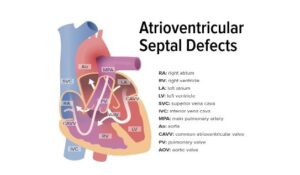Table of Contents
Introduction
Heart valve replacement surgery, a medical procedure of utmost importance, addresses heart conditions that hinder the smooth functioning of our vital valves. These mighty valves orchestrate the flow of blood throughout our bodies. Alas, when these guardians fall victim to damage or disease, their ability to open and close becomes compromised, leading to an array of complications. Enter heart valve replacement surgery: a necessary intervention aimed at replacing unhealthy valves with robust counterparts in order to restore normal blood flow and enhance overall cardiac function.
The realm of heart valve replacement surgeries encompasses various approaches tailored to meet each patient’s specific requirements and condition. The traditional route is none other than open-heart surgery – a tried-and-true method involving an incision in the chest through which access is gained to the heart for valve substitution procedures. Alternatively, there exists a minimally invasive technique characterized by smaller incisions and specialized surgical tools employed for accessing the heart. This novel approach boasts swifter recovery times and reduced risk of complications compared to its conventional counterpart. Ultimately, determining which path one embarks upon hinges on multifarious factors such as general health status, severity of valvular affliction, and professional advice from esteemed surgeons themselves.
Identifying the Need for Heart Valve Replacement Surgery
When it comes to the perplexing need for heart valve replacement surgery, myriad factors demand consideration. First and foremost, the severity of the enigmatic valve dysfunction assumes a pivotal role in determining whether surgical intervention is warranted. This determination typically hinges upon a series of diagnostic tests, including echocardiograms and cardiac catheterization, which surreptitiously probe into the inner workings of the heart valves. These tests artfully evaluate their functionality and efficiency, enabling astute medical professionals to unearth any clandestine abnormalities or limitations that may be impeding optimal performance.
Moreover, the symptoms experienced by the patient emerge as vital indicators illuminating the necessity for heart valve replacement surgery. Symptoms such as breathlessness, chest pain, erratic heartbeat, and crippling fatigue all conspire to insinuate a consequential malfunctioning of these crucial cardiac components. The gravity and capriciousness with which these symptoms manifest are meticulously scrutinized since they bear potent sway over discerning whether surgical rectification of said valve dysfunction will prove advantageous. Ultimately, unraveling this intricate puzzle necessitates an exhaustive appraisal encompassing both an assessment of functional valvular status and an evaluation of how their aberration constricts overall well-being – akin to unruly bursts amid perpetual perplexity.
Different Types of Heart Valve Replacement Surgeries

The realm of heart valve replacement surgeries encompasses a myriad of diverse options, each tailored to the patient’s unique circumstances and the specific valve requiring attention. Among these options, one prevalent approach involves the installation of mechanical valves ? artificial constructs meticulously crafted from synthetic materials. While these marvels of engineering boast durability and endurance, their implementation necessitates an ongoing regimen of blood-thinning medication to stave off the formation of pernicious blood clots that threaten peril.
Alternatively, individuals may opt for tissue valve replacements ? prosthetic devices fashioned from either animal or human tissues. Resembling their natural counterparts within the chambers of our hearts, these alternatives obviate the need for lifelong reliance on blood-thinners. However, they tend to exhibit a shorter lifespan than their mechanical brethren and may require subsequent replacement in due course. The decision between embracing mechanical or tissue valve replacements hinges upon an array of considerations encompassing factors such as age, overall well-being, and personal inclinations.
Conclusion
In conclusion, the decision to undergo heart valve replacement surgery is a complex one that requires a careful evaluation of the associated risks and benefits. It is essential for patients and their healthcare teams to engage in thorough discussions to make informed choices. While the surgery can provide significant relief and improve overall quality of life, it is not without potential drawbacks. By weighing these factors and considering individual circumstances, patients can make decisions that align with their long-term health goals.



